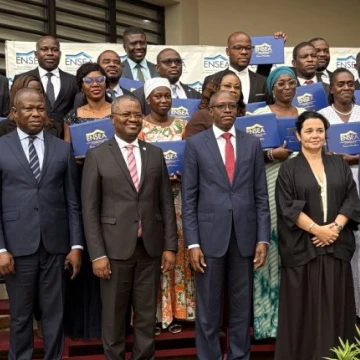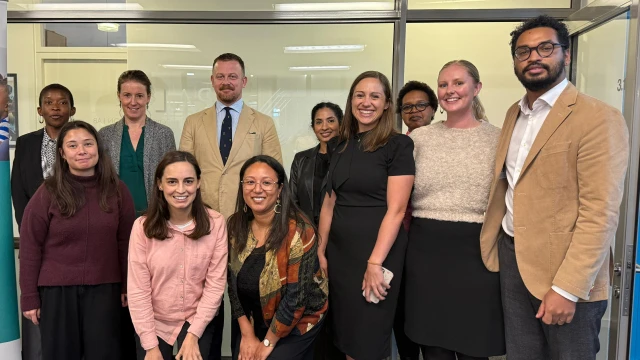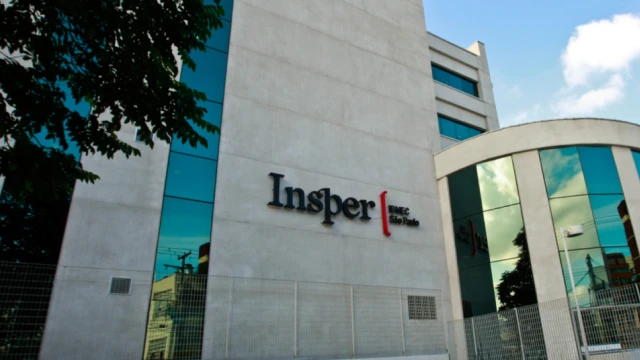.jpg)
J-PAL Africa, the City of Cape Town and Community Jameel launch new Water, Air and Energy Lab
- The Water, Air and Energy Lab will partner local policymakers and researchers to generate evidence-based solutions aimed at improving access to clean air, water and reliable energy for Capetonians.
- The launch was attended by Geordin Hill-Lewis, executive mayor, and Abhijit Banerjee and Esther Duflo, Nobel laureates and co-founders of J-PAL
- The WAE Lab is one of a network of air and water labs supported by Community Jameel that will collectively serve nearly 260 million people, including 5 million Capetonians.
On 14 March 2024, the Abdul Latif Jameel Poverty Action Lab (J-PAL) Africa at the University of Cape Town, the City of Cape Town and Community Jameel launched the Water, Air and Energy (WAE) Lab. The WAE Lab will foster collaboration between local policymakers and researchers to conduct randomised evaluations and inform the scaling of evidence-based programmes and policies for clean air, water and reliable energy for Capetonians.
The launch was announced at an event at Cape Town’s Civic Centre, bringing together City of Cape Town policymakers and researchers from across the world. The event featured remarks from Cape Town mayor Geordin Hill-Lewis, Nobel prize laureates and J-PAL co-founders and co-directors Esther Duflo and Abhijit Banerjee and WAE Lab scientific advisor Kelsey Jack, among other distinguished speakers.
Geordin Hill-Lewis, executive mayor, City of Cape Town, said: “As we address the current energy crisis and seek to prevent future water crises, we will utilise the city’s innovative data systems and work with researchers to rigorously evaluate and scale policy and technological innovations that will positively impact residents.
The WAE Lab is part of a worldwide network of J-PAL Air and Water Labs (AWLs). Created with Community Jameel, AWLs partner with government agencies in South Africa, Egypt and India to address the most pressing air and water challenges through evidence-informed policies. Together, the labs aim to improve clean air and water access for millions of people by informing the decisions of city, state and national governments that together serve nearly 260 million people, including nearly 5 million Capetonians.
The AWLs expand the work of J-PAL’s King Climate Action Initiative, building on the foundational support of King Philanthropies to develop new research and policy approaches at the intersection of climate change and poverty reduction worldwide.
Iqbal Dhaliwal, global executive director, J-PAL, said: “Over the past decade, J-PAL has built long-term strategic partnerships with governments around the world to greatly increase policy-relevant research and its scale-up. Our Africa office has been based in Cape Town since 2010, so I am thrilled that the WAE Lab will build strong collaborations with our host city on their critical policy priorities around air, water and energy.”
The importance of evidence-informed policy for clean air, water and reliable energy in Cape Town
Kelsey Jack, scientific advisor, WAE Lab and professor, University of California, Santa Barbara, said: “Not only are clean air and water and reliable electricity essential for communities to thrive, but ensuring access to these resources will become increasingly challenging with progressing climate change and growing inequality. This partnership provides a unique opportunity to support a culture of learning and innovation in government that will lead to better policies and programmes for people who need them most.”
The African continent’s population is projected to double between 2020 and 2050, with two-thirds of the growth happening in cities and urban areas. As urban populations grow, settlements densify, roads often become congested, and the additional demand for limited water and energy can strain infrastructure and compete to make the resources scarce. Growing populations create new challenges for providing residents with quality basic services, which are exacerbated by climate change. The impacts of these challenges disproportionately impact people experiencing poverty.
Solutions to these problems are scarce, often because data and evidence on policies that work are limited. The resulting uncertainty around the most effective course of action may harm vulnerable communities. Randomised evaluations can help ensure policy solutions achieve their desired effects by rigorously testing them in real-world settings.
Collaboration between J-PAL Africa and the City of Cape Town
To address this challenge, the WAE Lab intends to foster deep collaboration between the City of Cape Town, J-PAL Africa and researchers in the J-PAL network. The lab will partner researchers with local policymakers to:
- co-identify the most pressing air, water and energy challenges and opportunities for policy innovation;
- expand access to and use of high-quality air, water and energy data;
- co-design potential solutions informed by existing evidence, design more targeted policies and use data to monitor progress;
- co-generate evidence on promising solutions through pilots and randomised evaluations and determine which ones should be scaled up;
- provide technical assistance to scale effective air, water and energy policies and programmes.
Uzma Sulaiman, associate director, Community Jameel, said: “Policymakers hold the key to many clean air and water solutions, and partnerships with researchers are essential to evaluate and refine these solutions for the greatest impact. Community Jameel is dedicated to fostering these relationships, building on J-PAL’s decades of experience creating trusted policy partnerships around the world.”
This work builds on a decade-long relationship between J-PAL Africa and the City of Cape Town, and the City’s long-standing commitment to using data and evidence to inform policy.
Looking forward: Broadly disseminating policy lessons and research results
As the WAE Lab begins to generate rigorous evidence, we will widely share the lessons to inform the work of governments, NGOs, and the private sector throughout South Africa, the continent and beyond.
In particular, the lab will collaborate with C40 Cities, a global network of mayors of the world’s leading cities that are united in action to confront the climate crisis, to share policy-relevant evidence and identify opportunities for potential new connections and research opportunities across Africa.
Vinayak Bhardwaj, executive director, J-PAL Africa, said: “As climate impacts increasingly cut across all sectors and threaten to reverse decades of poverty alleviation, urgent action is needed. J-PAL Africa is eager to partner with decision-makers throughout the continent to inform the development and scaling of policies and programmes with evidence.”
To learn more about the WAE Lab, visit its web page or email waelab@povertyactionlab.org.








